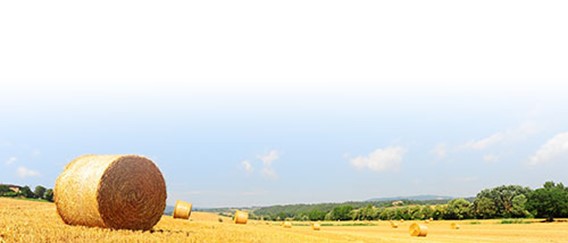It’s almost impossible to turn on the news today without hearing something about the green movement. From politicians to celebrities to activists, people around the world are calling for greater use of renewable resources while limiting the production of harmful toxins and pollutants.
But what if you want to do something to protect the environment instead of just listening to people talk? If you do, then a job as an agricultural research specialist might be for you. Dr. Darrin Haagenson is one such researcher.
With the Department of Agriculture and Biosystems Engineering at North Dakota State University, Haagenson has been researching canola oil and canola biodiesel quality, working with others to turn canola seed into a fuel that is efficient, cheap and protective of the environment.
“It’s a very exciting career field to be in. There are so many new developments happening all the time,” Haagenson said from behind a desk stacked high with the latest research on canola. Haagenson received a degree in biology from Concordia College in Moorhead, Minn., his master’s degree in plant sciences from North Dakota State University, followed by his doctorate in agronomy from Purdue University. The path of a researcher is a long one, but it’s been worth it for Haagenson.
Part of a team of scientists
“I love my job. I won’t be in any other line of work,” Haagenson said. Biodiesel can be made from a wide range of plant products, from palm oil to animal fats to soybeans. Canola grows very well in colder climates and because North Dakota is the top canola producer in the United States, it makes sense to find alternative uses for it.
Haagenson is one member of a large, multidisciplinary group of scientists trying to increase the canola oil content per acre. Several thousand canola lines from five different North Dakota locations are analyzed each year for quality. The data are shared with the breeder, who selects the parents for future generations of canola. Eventually, some varieties will be grown by farmers, and researchers and engineers develop the seed into fuel. Haagenson said there are a few unknowns facing the biofuel industry, including environmental and economic concerns.
“There’s always the debate about using food for fuel, and it’s still unknown whether biofuels actually reduce the carbon footprint,” he said. Another challenge is introducing added-value to the crop so it will be something farmers will want to produce.
Science fairs and work study
For students interested in agricultural research, Haagenson recommends getting involved with science fairs in high school and obtaining a work study position in an agricultural lab early in college. Work study positions give students valuable field or laboratory experience.
“In the beginning, it might not seem like the work you do is that impressive. It’s important to realize you most likely aren’t going to author a research paper, but you’ll be doing general lab maintenance work like washing beakers and test tubes, making solutions, or tending to greenhouse plants,” he said. “This work may seem mundane, but it’s necessary, and students are valuable lab members. This experience could provide later opportunities for independent research. More importantly, working in a lab gives you a chance to see what researchers do and gives you a chance to ask questions.”
The possibilities for agricultural research extend across many disciplines, including plant science, engineering and economics. “There’s going to be a demand for renewable products in the future,” Haagenson said. “This won’t go away.” The work that is being done today has the possibility to affect people for many decades to come.

